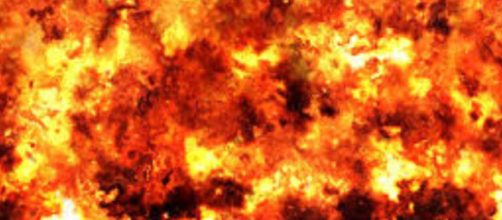A feeder pipeline belonging to the Waha oil company and directed to the largest oil depot in Libya, the Mediterranean port of Es Sider, was blown up this Tuesday, 26 December 2017. The Waha oil company is a secondary branch of Libya’s National Oil Corporation (NOC), which operates as a joint venture with Hess Corp, Marathon Oil Corp and ConocoPhillips.
The cause of the blast was unclear
Military sources have reported that the explosion was most likely the result of a terrorist attack. Carried out by either al-Qaeda-affiliated Benghazi Defence Brigades or Islamic state fighters, according to a report made by RT News, both of whom have been known to carry out attacks aimed at crippling the country’s oil production facilities.
Es Sider has been under shifting control since the start of the Libyan civil war in 2011, leading to severe damage throughout the fighting and to its closure between 2014 and 2016. This past March the post was recuperated by forces loyal to Khalifa Hafta, Libya’s eastern-based military commander, and resumed oil-operations.
Repercussions of this explosion were felt immediately as the company’s crude production dropped from 60,000 to 70,000 barrels
Consequently cutting Libya’s output by 100,000 barrels per day (bpd).This led to a spike in Oil Prices to mid-2015 highs as the Brent crude, the international benchmark for oil prices, went up to $67-and-some a barrel - an outstanding rise of 2.8 percent according to a report by CNBC on the explosion.
Although Libya is an oil-rich country, it’s oil fields suffered various random shutdowns due to power blackouts, protests, and internal conflict. The country was in the midst of an oil revival as it was producing about one million bpd this year, the highest it has been in the past four years. Consequently, Libya is one of two Organization of Petroleum Exporting Countries (OPEC), the other being Nigeria, that have been asked to limit their production to no more than 2.8 bpd.
Therefore, it can be expected that these drops in production will ease pressure on OPEC and its allies in their effort to drain an oversupply and boost up low oil prices.
Nevertheless, the explosion has not only led to noticeable set-backs on the country’s oil revival, but it has also had outstanding repercussions on the international oil market. More importantly, the explosion is yet another example of the fragile and unstable nature of the North-African state despite international efforts to stabilize the situation.


